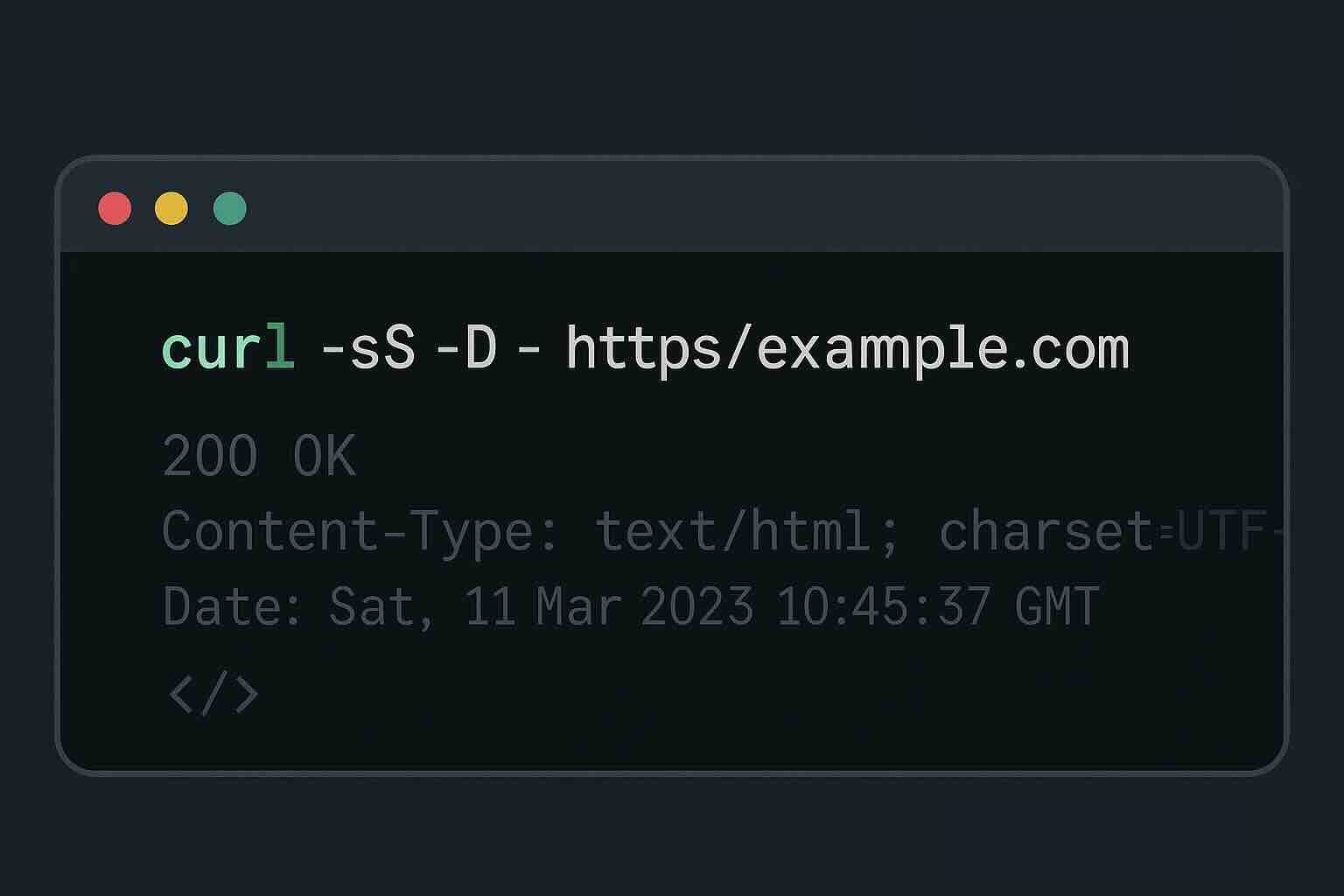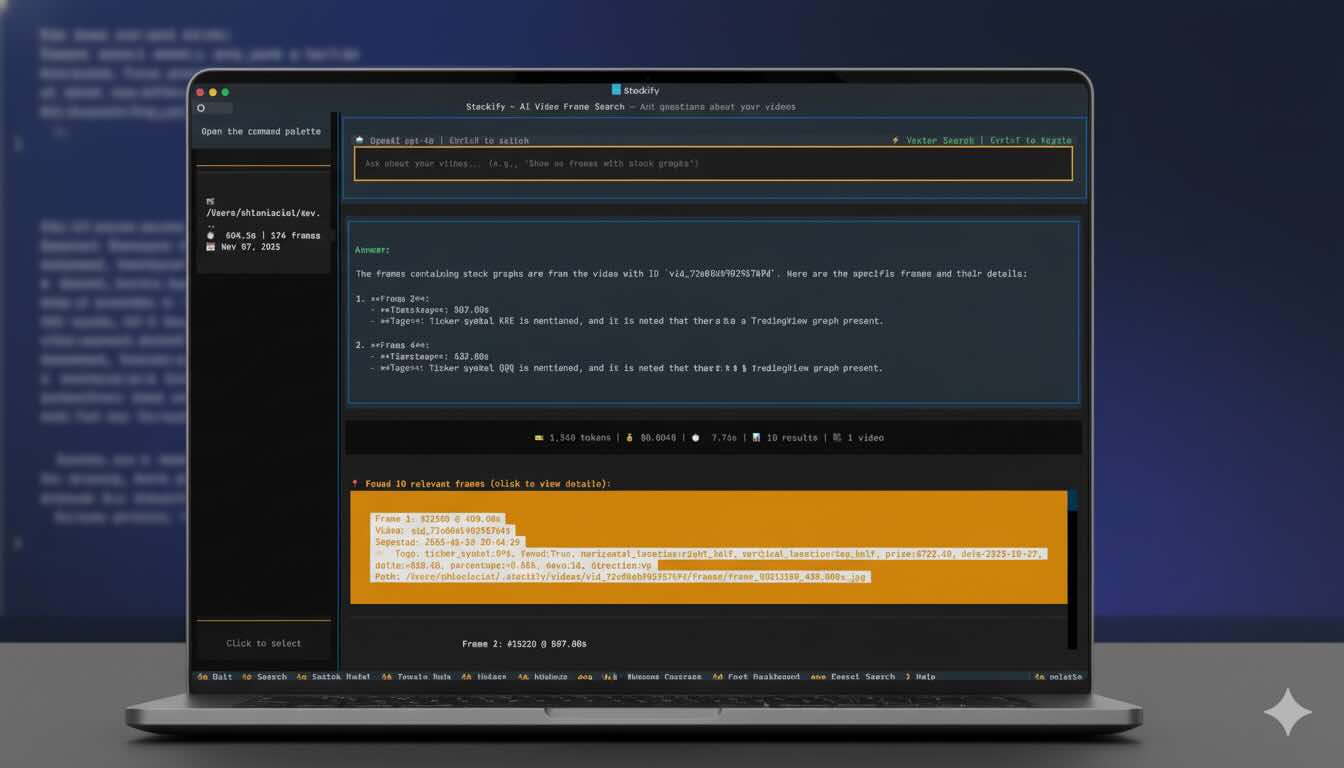· Gists · 3 min read
Getting your headers using cURL without overthinking
"Was it a capital S I had to pass in?"

Inspecting HTTP response headers with cURL is something I find myself doing pretty often. Here’s a clean, reliable way to do it:
curl -sS -D - https://example.com -o /dev/nullWhat do the flags mean:
-sS: Combines two options:
-s (silent mode): Suppresses progress and errors.
-S (show error): Re-enables error output if something goes wrong.
-D -: Dumps the response headers to stdout.-o /dev/null: Discards the response body.
Add It To Your Shell
function headers() {
curl -sS -D - "$1" -o /dev/null
}Now you can just run: headers https://example.com
Automate It with an Installer Script
You can install this as a command-line utility:
Tip
Make sure to chmod +x the script before running it.
#!/bin/bash
# Define colors for output
GREEN='\033[0;32m'
BLUE='\033[0;34m'
RED='\033[0;31m'
NC='\033[0m' # No Color
# Function to print messages
print_step() {
echo -e "${BLUE}[STEP]${NC} $1"
}
print_success() {
echo -e "${GREEN}[SUCCESS]${NC} $1"
}
print_error() {
echo -e "${RED}[ERROR]${NC} $1"
}
# Check if curl is installed
if ! command -v curl &> /dev/null; then
print_error "curl is not installed. Please install curl and try again."
exit 1
fi
# Determine where to place the command
if [[ -d "$HOME/bin" && ":$PATH:" == *":$HOME/bin:"* ]]; then
# ~/bin exists and is in PATH
INSTALL_DIR="$HOME/bin"
elif [[ -d "$HOME/.local/bin" && ":$PATH:" == *":$HOME/.local/bin:"* ]]; then
# ~/.local/bin exists and is in PATH
INSTALL_DIR="$HOME/.local/bin"
else
# Create ~/bin if it doesn't exist
INSTALL_DIR="$HOME/bin"
mkdir -p "$INSTALL_DIR"
# Check if we need to update PATH
if [[ ":$PATH:" != *":$HOME/bin:"* ]]; then
print_step "Adding $INSTALL_DIR to your PATH..."
# Determine which shell config file to use
if [[ -f "$HOME/.bashrc" ]]; then
SHELL_CONFIG="$HOME/.bashrc"
elif [[ -f "$HOME/.bash_profile" ]]; then
SHELL_CONFIG="$HOME/.bash_profile"
elif [[ -f "$HOME/.zshrc" ]]; then
SHELL_CONFIG="$HOME/.zshrc"
else
print_error "Could not find a shell configuration file (.bashrc, .bash_profile, or .zshrc)."
print_error "Please manually add $INSTALL_DIR to your PATH."
exit 1
fi
# Add to PATH in shell config
echo -e "\n# Added by headers command installer" >> "$SHELL_CONFIG"
echo "export PATH=\"\$HOME/bin:\$PATH\"" >> "$SHELL_CONFIG"
print_success "Added $INSTALL_DIR to PATH in $SHELL_CONFIG"
print_step "Please run 'source $SHELL_CONFIG' or restart your terminal for changes to take effect."
fi
fi
# Create the headers script
HEADERS_SCRIPT="$INSTALL_DIR/headers"
print_step "Creating headers command at $HEADERS_SCRIPT..."
cat > "$HEADERS_SCRIPT" << 'EOF'
#!/bin/bash
# headers - Show HTTP headers for a URL
# Usage: headers [URL]
if [ -z "$1" ]; then
echo "Usage: headers [URL]"
echo "Example: headers https://example.com"
exit 1
fi
curl -sS -D - "$1" -o /dev/null
EOF
# Make it executable
chmod +x "$HEADERS_SCRIPT"
print_success "Created headers command successfully!"
print_step "You can now use the command by typing: headers https://example.com"
# Check if we need to remind about PATH
if [[ ":$PATH:" != *":$INSTALL_DIR:"* ]]; then
print_step "Remember to run 'source $SHELL_CONFIG' or restart your terminal to update your PATH."
fi
# Test the command if possible
if [[ ":$PATH:" == *":$INSTALL_DIR:"* ]]; then
print_step "Testing headers command..."
echo "Example output from: headers https://example.com"
echo "----------------------"
"$HEADERS_SCRIPT" https://example.com
echo "----------------------"
fi
print_success "Installation complete!"


